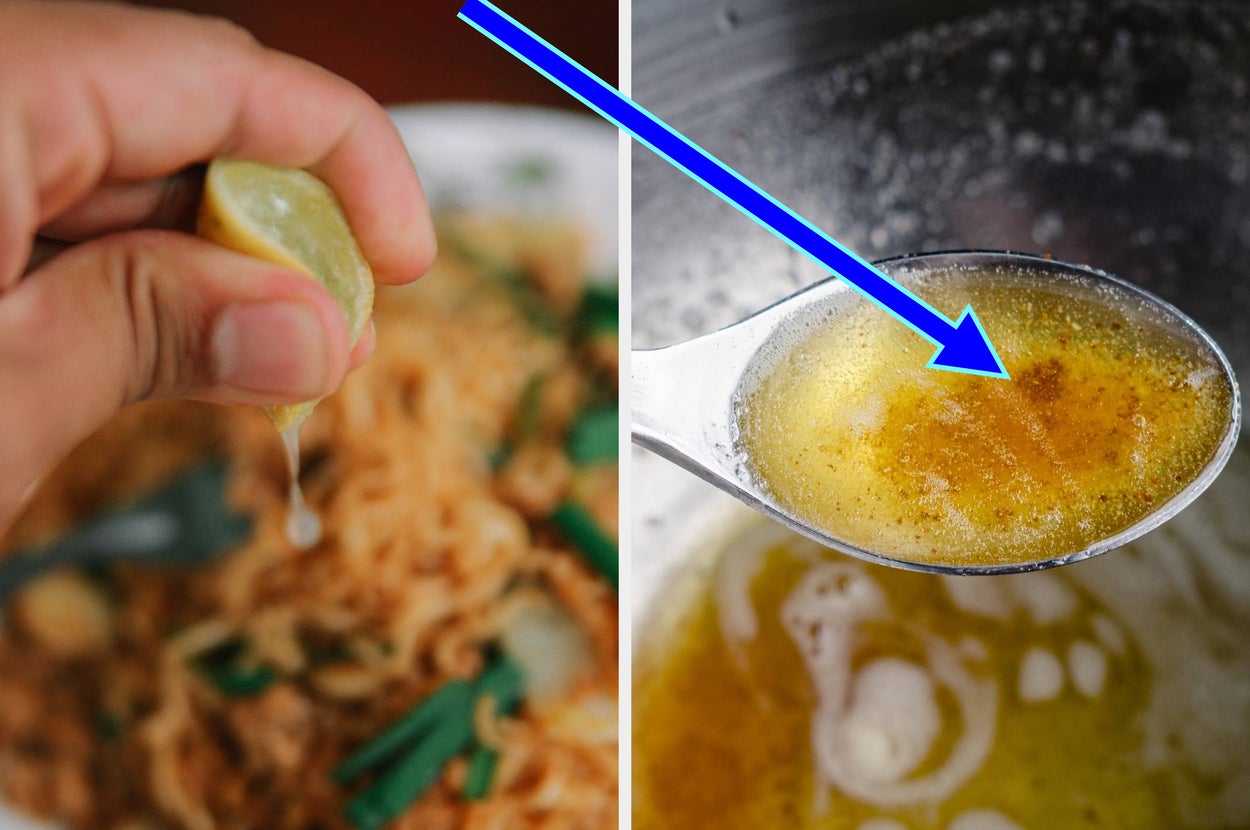Duck ramen at Yamakoz. | Dakota Kim At Yamakoz, Taiwei Ding and Sherry Yuan cook their own interpretations of cozy Japanese classics Pork tonkotsu still reigns as one of the most popular options at Southern California ramen shops, but lighter styles of broths coaxed from poultry and shellfish are slowly making their mark on the scene. One of the newer contenders in the lighter broth scene can be found at Yakamoz, an Irvine ramen shop opened by chef Taiwei Ding and Sherry Yuan in December 2024.
The shop serves a signature duck breast ramen, made with Jidori chicken, duck, clam, oyster, and kombu. Ding sous-vides duck breast for an hour before searing it at high heat to seal in its juiciness; the tender slices are then laid on top of the noodles and broth. Yakamoz’s only other ramen features slices of American wagyu and slow-cooked tendon in a beef bone and oxtail broth.

Casual comfort dishes like the Jidori chicken thigh curry, karaage, and wings round out the cafe’s menu, which rotates every few weeks as Ding experiments. Ding has recently added several smaller snacks like teriyaki fish balls, curried beef rib fingers, and crispy panko-fried shrimp served with sweet and sour sauce and homemade mayo.Ding’s focus on only two types of ramen is inspired by the Tokyo ramen masters; he says he would rather perfect a simple, clean broth than make multiple varieties that are less precise in composition.
“The Tokyo ramen chefs I admire make 72-hour broths that are very aromatic and flavorful, but afterward, your mouth feels clean — the broth is very clear,” he says. Ding and Yuan, who are both Cantonese Americans, went to Tokyo last April to learn to operate Japanese noodle machines, one of which sits in a picture window where guests can watch them feeding it dough. Ding keeps 200 cookbooks in the kitchen and office, which he reads daily, between “constantly watching ramen videos,” he says.
Dishes at Yamakoz. Interior of Yamakoz. While Ding is a student of the Japanese ramen style, he has his own expression at Yamakoz.
The noodles at the restaurant stray from a traditional thick wheat flour ramen, verging near soba in width and flavor, and are made of both buckwheat and wheat flours. “It’s not a Japanese-style noodle per se, but this thinner buckwheat noodle pairs so well with the duck and doesn’t overwhelm it,” Yuan says. Ding often asks his Japanese flour supplier to give him new brands with which to experiment.
His current noodle recipe combines buckwheat flour, French wheat flour, three brands of Japanese wheat flour, whole duck egg, chicken egg, and seven types of sea salt. Yakamoz’s cozy environment is the brainchild of Yuan, who wants guests to feel like they’re in a harmonious home. Tan leather banquettes fill a corner by a glowing model fireplace, and a large teddy bear perches in a small wooden child’s chair — waiting for his ramen, naturally.
Lisa Ono croons “Sway It, Hula Girl” on a record player, a stack of vintage Japanese records leaning against the wall. A local artist’s whimsical watercolor of the Parisian cafe Les Deux Magots hangs from the wall that Yuan limewashed herself, and neighbors and friends frequently drop in to socialize, try their latest dish, or linger over a duck ramen. Nearly every table orders a towering silver teapot with Taiwanese oolong; diners nestle into vintage wood chairs sourced from Yuan’s own house.
Yakamoz isn’t the pair’s first foray into food, though it is their first restaurant together. Yuan’s family owned a franchise buffet restaurant with 400 seats in Chicago for 16 years, while Ding’s family ran a food supply business near Hong Kong for 37 years. Ding later worked in the kitchen at Tim Ho Wan, a Michelin-recognized dim sum restaurant with locations in New York, Vegas, Houston, and Honolulu (the Irvine location is currently closed), where the menu was set and not one he could experiment with.
For Yakamoz, they imagined something different. Guests might be surprised when a popular dish disappears, but Yuan says having no set menu — or even any fixed recipes — is vital to Yakamoz’s creativity. “We don’t want a fixed recipe tied to us,” Yuan says.
“We want to be curious and try different things.”That experimentation includes swapping the formulas for sauces, like an unusually smooth curry sauce made with varying ratios of reduced apple and carrot puree, as well as a squid sauce that Yuan says is beloved by their Korean American guests. “I change the squid sauce all the time,” Ding says.
“My cooking philosophy is to always try to do something different, and right now, I like it with soybean paste, konbu, organic American sugar, Shaoxing wine, and Japanese mayonnaise.” Because of the restaurant’s constant dialing-in, Yuan recommends not requesting substitutions. “Certain ingredients might clash or cover the authenticity of a dish,” Yuan says.
“Based on what ingredients we can locate, we will change the recipes for soup, rice, and curries to really highlight the unique properties of the ingredients.”One thing that won’t change, Ding says, is Yakamoz’s comfort food leanings. He says he hopes that it’s the type of restaurant that people will return to regularly, to have filling meals without any fuss.
“This is the kind of food you’d eat as your last meal before you die — simple food with unique ingredients, like the ramen, the noodles, and rice my mom would cook for me,” he says.Yamakoz is located at 4250 Barranca Parkway #Q, Irvine, CA 92604, and is open for lunch and dinner Tuesday to Sunday. Taiwei Ding and Sherry Yuan.
Curry..

/cdn.vox-cdn.com/uploads/chorus_image/image/74056203/IMG_3165.0.jpg)














